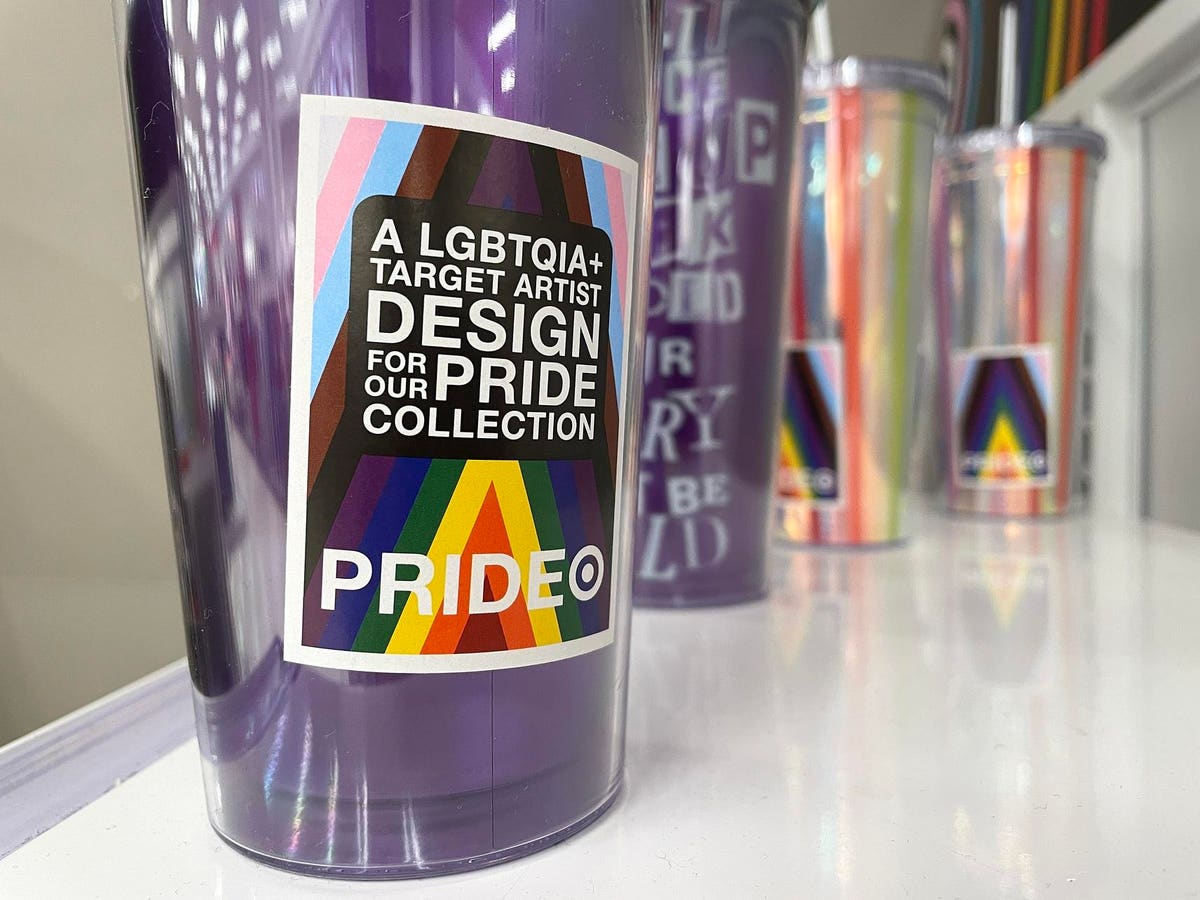On a recent media call discussing second quarter earnings, retailer Target admitted that backlash from their Pride collection this year contributed to lower sales than expected.
One group of consumers were angry because certain items in the Pride collection were designed for the transgender community. Some of them harassed store employees, vandalized in-store Pride displays, and called and made threats to the customer service line to show their disapproval.
Target responded by removing the most controversial items in the collection and relocating displays in select stores to keep their employees safe. Supporters of the LGBTQ+ community got angry with Target for their response. They felt like they were caving in to bullies.
Despite the backlash from this year’s campaign, Target, which has supported Pride month in stores for more than ten years has declared their commitment to continue to support the LGBTQ+ community and Pride month moving forward.
On the media call, Target’s chief growth officer Christina Hennington did say however, that there would be changes in how Target celebrates heritage months. She told reporters, “some of the changes we’ll make to our heritage month collections going forward will look like this: We’ll have a slightly more focused assortment and will evolve our store and digital presentations, and we’re going to reconsider the mix of our own national brands with our external partners. And so … you’ll see us celebrate these heritage moments, but with these modifications.”
While we’ll need to wait and see how these modifications play out in practice, there is one big caution for Target and other brands as it relates to supporting marginalized communities, particularly during heritage months.
Heritage Months Are Not About The Brands Celebrating Them
The objective of any heritage month is to put focus on elevating the achievements, contributions, and people within the people of the community you are celebrating. The focus is on celebrating, elevating, and investing in the community — not profiting from celebrations honoring them.
One of the reasons why so many have celebrated how Target approaches heritage months, is because the brand historically featured a large assortment of products from designers and businesses that were part of the community being celebrated. For instance, Black history month had a large number of products from Black-owned businesses and creators. And Pride month featured a large number of products from LGBTQ+ owned businesses and creators.
Heritage months are a wonderful opportunity for brands to elevate the voices and products and services from business owners who are part of these underrepesented and underserved communities. Now that Target is reevaluating what that mix looks like, it brings cause for concern.
One of the products that was a main focus of the backlash for Target’s Pride collection, was from Erik Carnell, a transgender designer based in London. According to Carnell, Target reached out to him to feature some of his products in this year’s Pride collection.
After the collection went live, Carnell’s brand was accused of being Satanic. People against the products said that Target was promoting Satanic products to children. Carnell’s brand Abprallen, did have a few items on its own website that featured items that said things like, “Satan respects pronouns.” None of Carnell’s products that mentioned Satan were included in the Target collection.
The hope is that as Target reevaluates their mix of their own national brands versus the ones of external partners for these heritage months, they don’t move in favor of featuring more of their own products, as a way to try to avoid backlash.
While it is nice to have brands celebrate heritage months, what consumers prefer is when brands aren’t celebrating them in a manner that seems like the focus is on brand’s profiting from it.
If Target starts to feature more of their own branded Pride, Black History Month, and Hispanic Heritage month products, it will diminish the impact of their celebration within the communities. Focusing on featuring more of their own branded products, means they are passing on the opportunity to elevate more people within the community.
For instance, as a Black consumer, during Black History Month, I don’t want to buy any products celebrating Black History Month that aren’t made by a Black-owned company, or where the profits don’t go to benefit the Black community. That sentiment was echoed by consumers last year when Bath and Body Works featured a Black History Month collection that was designed in house.
Codeword Agency recently commissioned a survey to find out how consumers felt about brand campaigns for Hispanic Heritage Month. Hispanic-identifying respondents said they most wanted brands to “invest in Hispanic communities” for heritage months and beyond. Featuring Hispanic Heritage products not made or designed by people who are Hispanic, is not an example of investing in the community.
We will continue to wait and see what these modifications for celebrating heritage months mean for Target.
In the meantime, as you focus your efforts on engaging with and serving consumers from underrepresented and underserved communities, know that investing in, elevating, and standing up for the community are costs of earning their attention and loyalty.
As a business, of course profits are important. However, those profits should not come by exploiting and extracting from communities that are already marginalized, while masking it as a way of celebrating them.
Read the full article here





